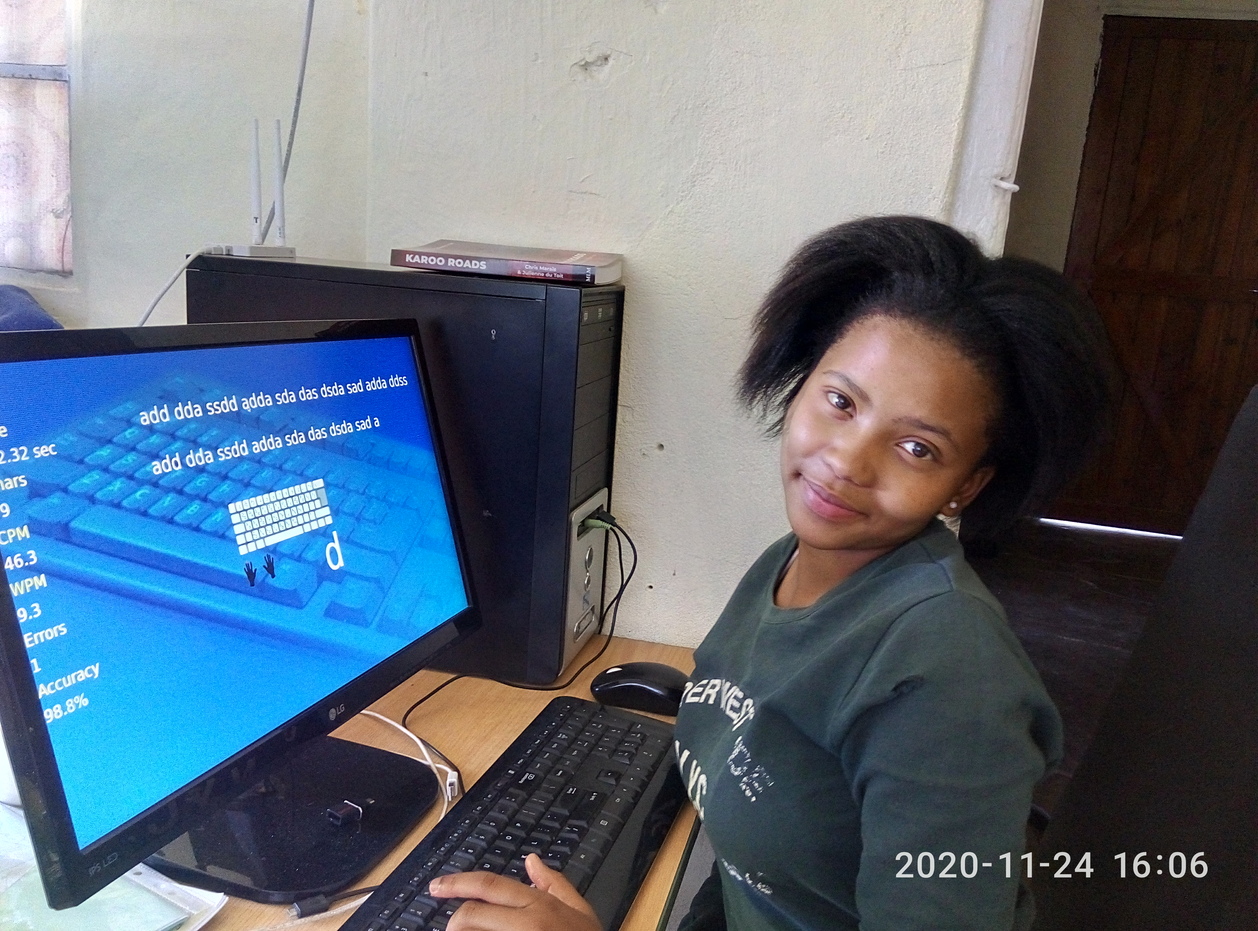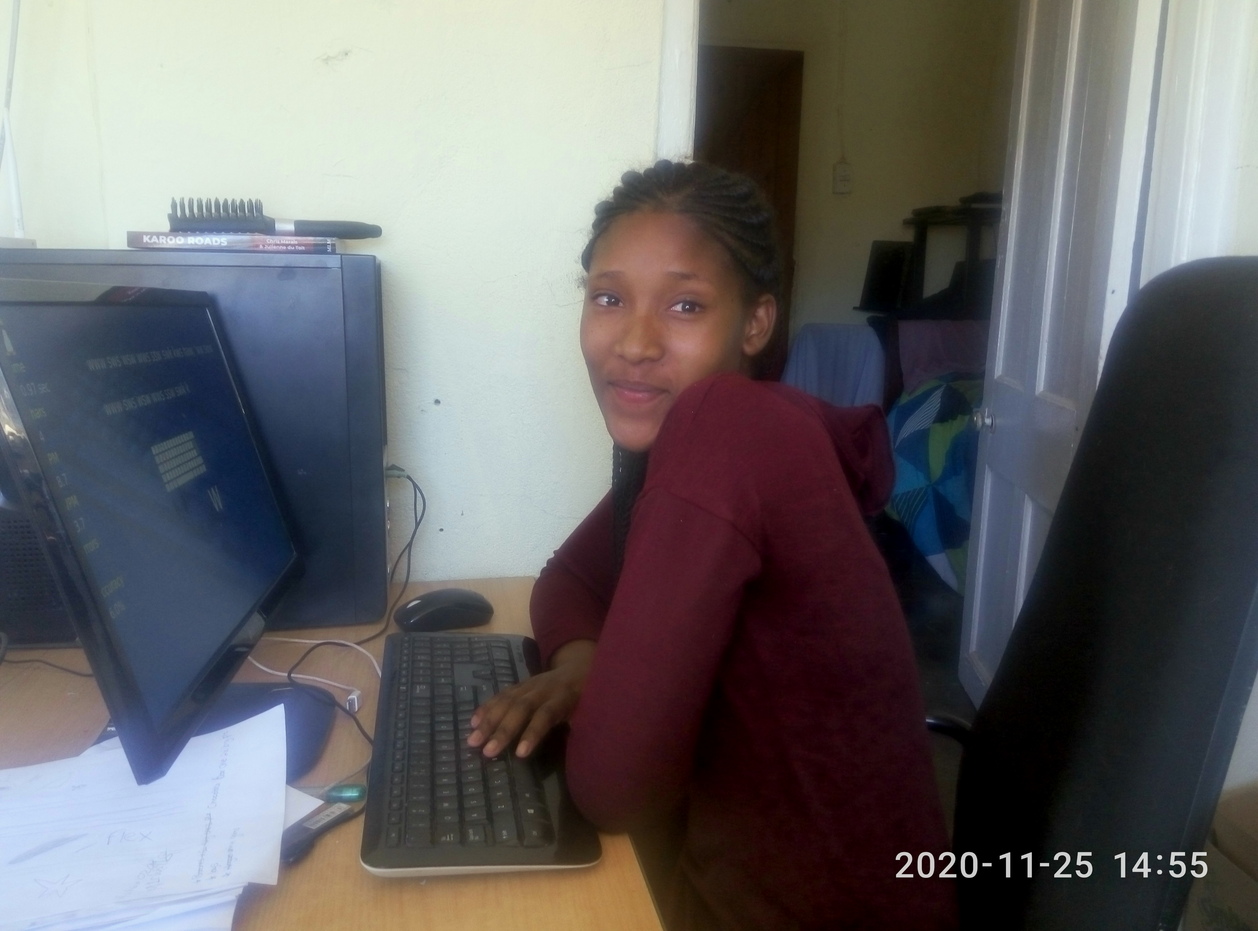Touch Typing
The Covid–19 touch
From Daily Maverick – 26 Nov 2020
Offices were always going to become optional. Video conferencing was always going to drag us into a global market. The Internet was always going to make the world smaller each year. Nobody could predict the rapid acceleration of these trends in 2020.
Believe it or not, we have the pandemic to thank for these advancements, with technology finally thrusting us into a new world of remote work, video conference sales calls, global digital events and teams working from wherever their homes may be.
Like it or not, this was always where the future was going, it just arrived with a crash, not a whimper.
Last week learners Aviwe and Michelle accepted a challenge to achieve 20 words per minute in two weeks. Here they are, ready to go with Tux Typing on our Ubuntu Linux PC.


This was sparked off by the same view set out in DM’s article: Covid–19 has changed everything. It has been said elsewhere in this blog that learners will eventually learn to prepare HTML documents. Word processors like Microsoft Word, Word Perfect (anyone remember that? It was better than Word by far, and version 5.1 was so good, it was used to typeset Toverberg Indaba) and LibreOffice Write will be quietly shoved aside, and learners will soon be asked to produce digital documents. It follows that soon after that, they will start to save these on web pages provided on a school server.
In the postal economy, back in colonial days, the chief requirement for getting hired was good handwriting. Today, working nearly anywhere means working on a computer. Civil Servants still write exams for promotion. In handwriting days, some percentage of marks were given for good handwriting and presentation. Not too far down the road, their HTML presentation skills will be marked instead.
At school, Instead of email attachments, URL links will allow the teachers to access work. Nice - no need to carry piles of paper home to mark - just access the school server.
This elevates the importance of internet access, so some schools will need to up their game. Good. A lot has been said about creating “good” jobs for people, and system admins don’t have to be programmers. Just keeping a server going is not that hard, it’s only when looking after crucial databases comes into the picture that administration becomes very specialised.
The South African government, soon after 1994, announced that it intended to use open source. Now and then, they still say it, but haven’t done it. Every worker facing the public in any government office I have ever seen is working in Windows. All that money goes to Microsoft! Never mind, though, after Covid–19, as DM says, everything will change, and it will sink in that everything is going to the World Wide Web. If the government has any nous at all, it will put a lot of money into this easier level of IT management.
This blog post is created in Markdown, a document formatting method that is very easy to learn. It is converted automatically to HTML by our blogging platform. School learners learn Markdown in a few mornings, and are comfortable with it within a week. Markdown converters are all over the web, and most programming languages have a library that can easily be imported to do the job. YouTube has many clips about Markdown.
We think touch typing and Markdown is the way things will go, and that’s why we started this challenge. Bottom line is: smartphones are consumer devices. They are good for response, but not preparation or development. The smallest device convenient for real work is a tablet, unless the long expected phone docks take off, where one will dock a smartphone into a screen and keyboard setup. Voice typing is very good these days, but a keyboard is a must for editing.